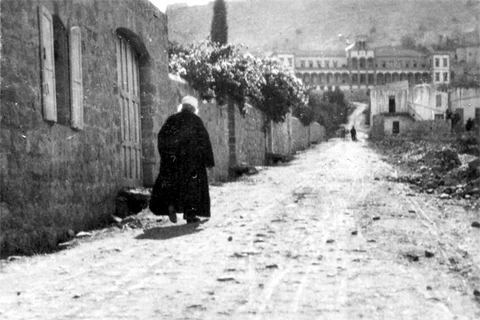|
|
|
Epilogue November 23, 2021 It is finished, it is finished “Fear not, fear not if this Branch be severed from this material world and cast aside its leaves; nay, the leaves thereof shall flourish, for this Branch will grow after it is cut off from this world below; it shall reach the loftiest pinnacles of glory, and it shall bear such fruits as will perfume the world with their fragrance.”  ‘Abdu’l-Bahá was feeling the full weight of both His age and His endless responsibilities like an anchor tethered to the deepest ocean. He joked about the ‘hoar hairs’ on His head. His legs had to be massaged regularly to keep His circulation flowing. He suffered from lifelong asthma and from the long-term after-effects of the frost that had blighted His limbs in His youth during His family’s long exile from one country to another in the Middle East, hounded as they were by both the Persian and Ottoman governments. All His ailments, of which He never complained, were a testament to the harshness of what His long life had been as a prisoner, as a dedicated son to His Father – the Servant of Bahá – and as a lover of an ever-demanding and fractious humanity. Nevertheless, His door was always open to a constant stream of pilgrims seeking illumination and love at His feet, government officials mining the gems of His wisdom, townspeople eager for His advice, the poor massing at the entrance of His home awaiting the gifts of His generosity and tender loving care. Not all people who met the Master saw even a glimmer of the Mystery of God, but all left His presence convinced of His spiritual greatness. Never a moment was spent in seeing to His own needs, which were few in any case. If the Master saw a poor man ill-dressed for the weather, He would literally give him the very clothes on His back for his comfort. He tended to the sick, no matter how crushing the poverty and squalor in which they lived. Despite His warnings of the impending conflagration, which fell on deaf ears, there was nevertheless a twinkle in His eye. When the bombs were dropping nearby during the Great War, He would gather the family and believers about His feet and tell funny stories until they laughed so much that tears of joy rather than fear would streak their faces.
Although in
fragile health, ‘Abdu’l-Bahá had boldly embarked on a long
three-year voyage spanning from Egypt to Europe, including Switzerland,
Austria, Germany, Hungary, France and England, to the United States and
Canada. The Master had never spoken publicly before, but with the aid
of His translators, He eloquently and passionately expounded on the
spiritual reality of humanity and the major tenets of His Father’s
faith, a faith that will one day bond humanity towards an advent of
justice that no previous religion has had the power to do. He honoured
all the religions and their adherents that had previously been revealed
as the chapters in one book written by the Hand of God. He transformed
people with His all-encompassing love and wisdom. He put food on their
table, filled their arms with roses, pressed coins into the hands of
the poor and exhorted all to put their faith in God and to embrace the
teachings of Bahá’u’lláh. New and long-time Bahá’ís alike drank deep
the cup of His spiritual power and love. |
|
|